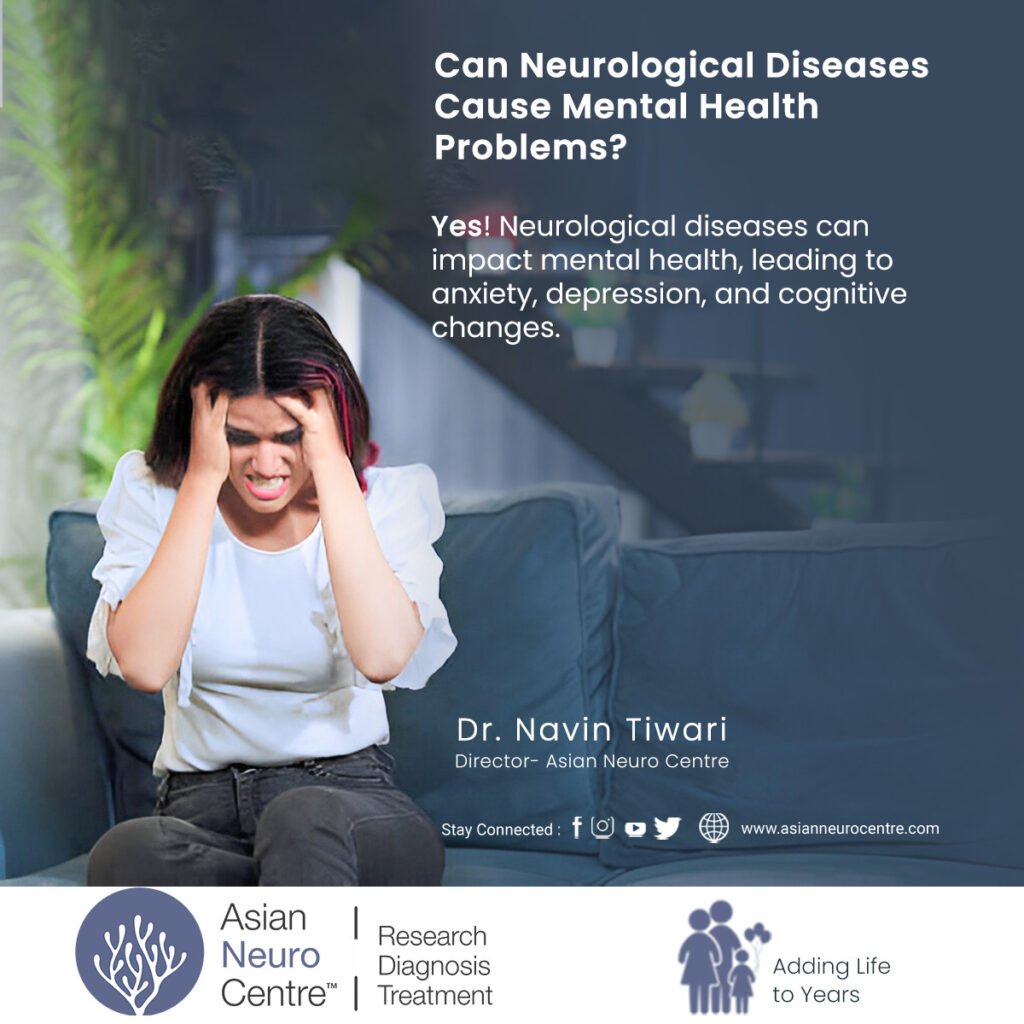- Have any questions?
- 911 12345 29
- info@asianneurocentre.com
Can Neurological Diseases Cause Mental Health Problems?
Can Neurological Diseases Cause Mental Health Problems?
Neurologic diseases affect the brain, spinal cord, and nerves, which lead to physical as well as cognitive dysfunction. Neurologic diseases can, nonetheless, have a substantial psychological impact. Neurologic diseases alter brain function, which leads to depression, anxiety, and other psychological disturbances.

Impact of Neurological Disorders on Mental Health
Neurodegenerative diseases can lead to structural and biochemical changes in the brain, disrupting mood regulation and reactivity.
For instance, diseases such as Alzheimer’s, Parkinson’s, and multiple sclerosis (MS) hurt neurotransmitters, leading to depression, instability, and anxiety.
Common Neurological Disorders Linked with Mental Illnesses
- Alzheimer’s Disease: Cognitive and memory functions may decline, resulting in depression, confusion, and personality change.
- Parkinson’s Disease is a circumstance wherein, aside from its effect on movement, depression and anxiety ensue as a result of disrupted levels of dopamine.
- Multiple Sclerosis (MS): Patients have mood changes, depression, and anxiety due to immune attacks on protective sheaths of nerves.
- Anxiety and depression can be caused by drug side effects and seizures in epilepsy.
- Stroke victims often undergo a great amount of psychological distress, resulting in post-stroke depression.
Biological and Psychological Factors
The disease can undermine areas of the brain which assist in modulating feelings. Sustained illness can also create psychological stress, which can make mental illness worse. Hormone imbalances, inflammation, and disturbances in neurotransmitters play a role too.
Management of Mental Health in Neurological Disorders
Adequate medical care, support systems, and therapy play a critical role in keeping a person in a healthy mental state. Cognitive-behavioral therapy, medications, and lifestyle changes such as exercise and mindfulness can help patients overcome emotional conflicts.
Conclusion
Disease of the nervous system and mental illness go hand in hand. Identification of such a relationship facilitates easier, timely intervention and enhanced care of psychological and neurological symptoms. Proper care and support can help a great deal in enhancing such patients’ well-being.
Dr. Navin Tiwari
Consulting Neurologist
